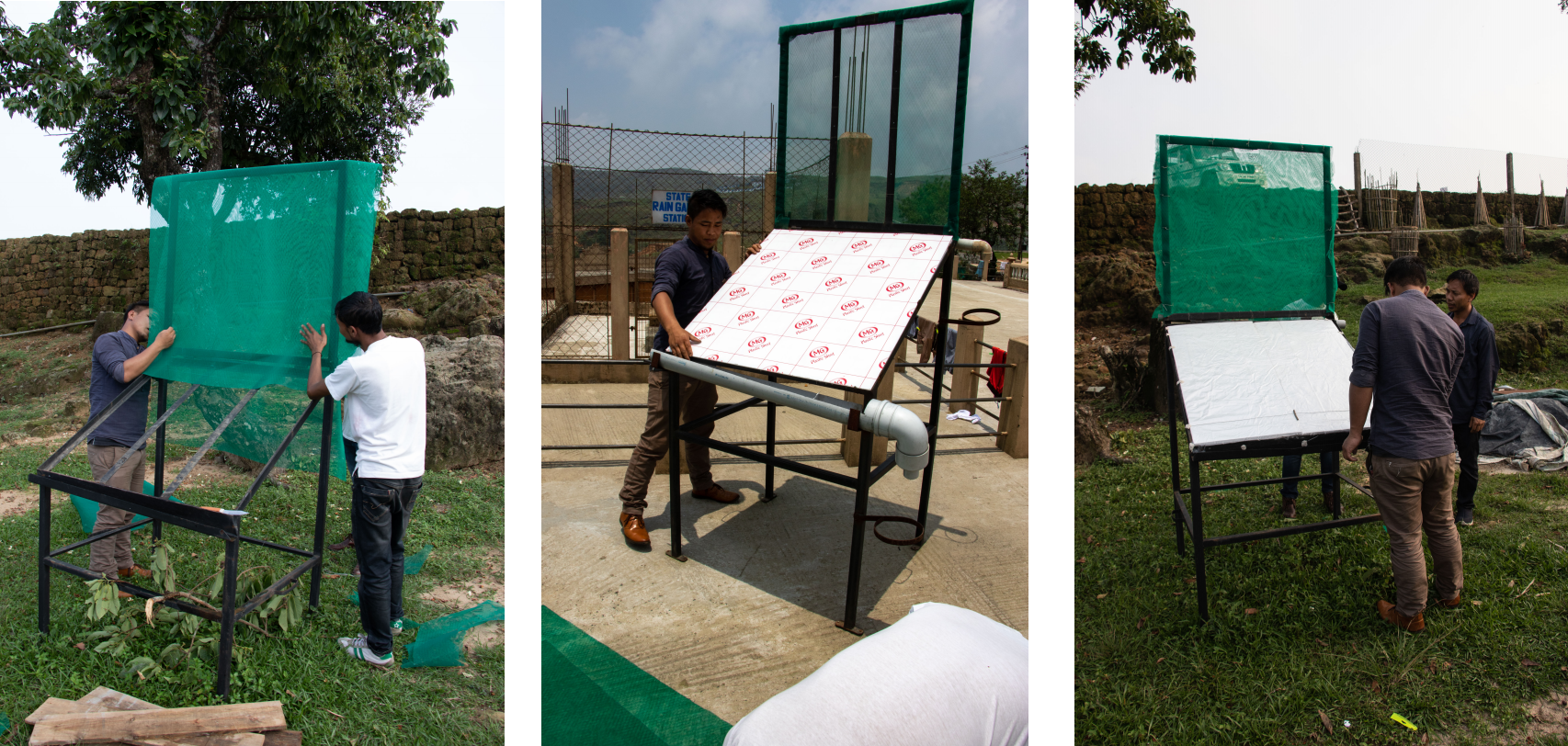Date: 09-07-2020
Free Crash Tuition in Mathematics and Science for under previliged students was organized in 128 centers across the States. 2 Students secured 9th and 18th rank in the merit list.
Date: 2019-10-02
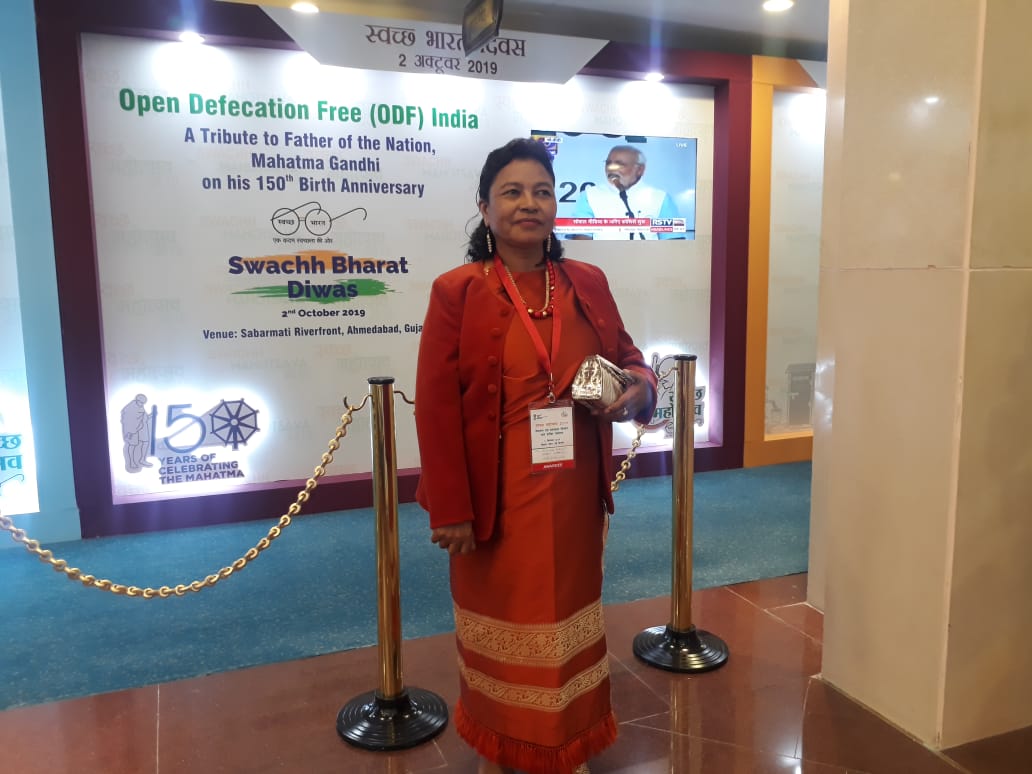
Ms Belinda Kharsati, founder of School Eco Club at Pomlahier Secondary School, Mawryngkneng village was recognized and conferred the prestigious National Award under Swachh Bharat Mission (Grameen) at New Delhi.
Date: 2019-05-13
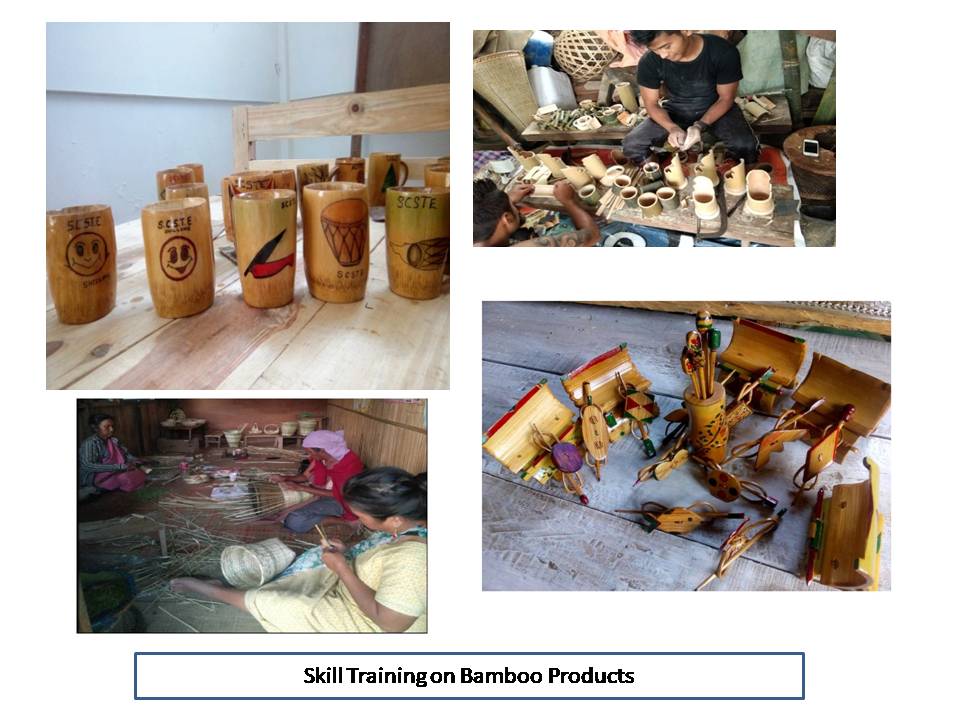
The Council introduced the skill training on Bamboo products whereby potential groups and partners were identified from those who had already acquired the skills on bamboo works in their areas, but they have not yet been exposed either for upgrading their skills or for show casing their products. A 20 day (twenty) Skill training on Bamboo products was organised for women groups and youth organisations from Nongsken, East Khasi Hills, Phlangwanbroi, East Khasi Hills, Nongstoin, West Khasi Hills and Bolmoram, East Garo Hills. Hands-on training on a varieties of bamboo products were imparted by Zogam Bamboo works, Manipur, these products were mobile stand, mugs pen stands, pens, water bottles, key chains, hair clips jewels boxes and a number of artifacts .The hard work and active participation of the women folks and youth had led to the success of the programme based on the quality of products made by these participants. Interestingly, it may be noted that a group from Nongstoin, West Khasi Hills, the ‘Khmih Creative Society’ had taken up the initiatives to make use the knowledge learnt during the training by means of a start –up business in bamboo products, the Society is now focusing in bamboo mobile stands and pen stands with new improved designs, the products had a lot of demand from individuals especially those who appreciates handicraft products as well as business agencies in the state .It may also be mentioned that since these members of the society are skilled and have creative ideas, well designed and more traditional products like bamboo lamp –shades bamboo artefacts were made by them. Though in a small humble beginning, with only 2(two) members trained ,their hard work combined with knowledge and skill acquired from the training, the group aspires to develop and to improve and expand business activities in their areas of expertise ,though with just a meagre earning in the beginning , the youth members with the constant guidance of SCSTE, Meghalaya and other related agencies are expected to perform better with bamboo products as a better opportunity for self employment in the state.
Date: 2019-03-15
The Technology Innovation and Entrepreneurship Expo was organized in which 20 grass root innovators from Meghalaya and 29 innovators from the North Eastern States and other part of the Country participated along with representative and scientists from the technical NGO and CSIR labs. Recognizing the initiative of the State Council of Science Technology & Environment , Meghalaya in further the cause of the grassroots innovation movement in the State, it is being awarded the NIF - India Partnership Award during the " 10th National Grassroots Innovations & Traditional Knowledge Award Function" held at Gandhinagar, Gujarat during the 15th March, 2019.
Date: 2019-02-08
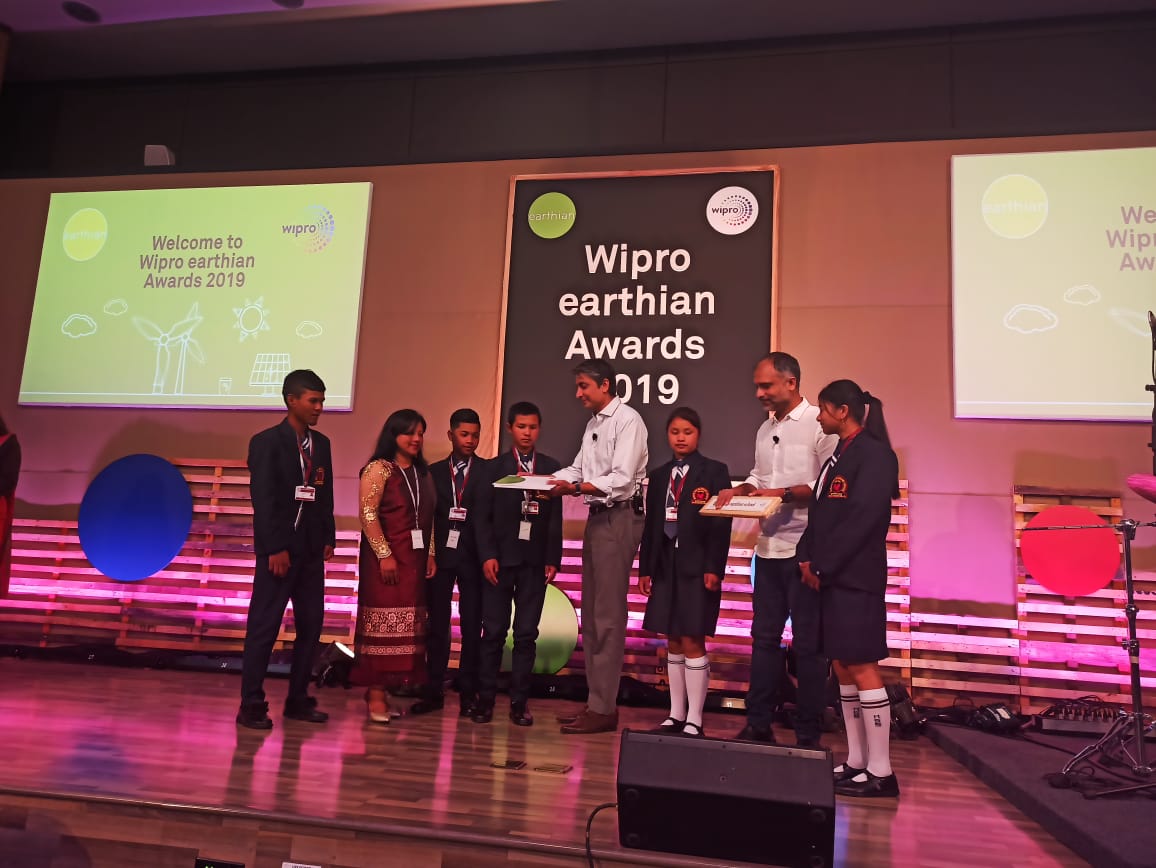
A team of students from Mawphlang Secondary School, Mawphlang received the Wipro Earthian Award 2019 at Bangalore on the theme "Biodiversity".
Date: 2018-08-15
The Setting up of the Bolmoram Technology Resource Centre cum Knowledge and Innovation Park, East Garo Hills, Meghalaya was initiated on 15th August, 2018 and is being catalysed by SEED, DST Govt. of India. The Main Objective of this Centre are as follows:-
Create awareness on technologies that can improve the livelihood of the household.
Capacity building of community to own and manage their enterprises on a sustainable manner.
Create a platform of exchange of knowledge between Community to Community (C2C) and Community to Scientist (C2S)
Establish linkages of enterprises with developmental agencies, financial institutions and market.
Developed technologies that specially focuses on reducing women drudgery and increasing their livelihood by enhancing their skills set.
The villagers from these 5 target villages were sensitized on the essence of this Centre and also on different appropriate technologies that are available with the Council such as Green building technologies, low cost hatchery, bamboo technology, etc. In fact some of the villagers were trained on bamboo technology at TRIBAC, Tripura and on food processing technology at NIRD, Guwahati. The setting up of this Centre has brought many initiatives from other developmental organization. The Convergence of these organizations with the Centre is a model that can be replicated by other Council as well. The Council has been able to mobilize and built up some unemployed youth of the state to form a Technical NGO called Consortium of Resource Persons (CORPs) to take this initiative forward and even to take up a loan from Indian Overseas Bank, Shillong to set up the Centre on a business mode. The Centre has been able to forge collaboration with (i)Bio Resource Development Centre (BRDC) for initiating Sustainable Green Technologies and plantation of lemongrass (ii) Meghalaya Institute of Entrepreneur (MIE) to conduct training on Livestock (iii) Meghalaya State Rural livelihood Society (MSRLS) has deputed two interns from NIRD, Hyderabad to stay in the Centre and learn from it (iv) Action, Aid, International, Guwahati has used the Resource Person of CORPs to do a study on the Educational status of the children in the Songsak block where this Centre is located (v) The Centre is tying up with SELCO Foundation and EMSYS, Bangalore in showcasing the productive end and use of solar energy (vi) presently the Centre is being lighted using solar energy which was an initiative of Sauramandala Foundation, Bangalore and a digital learning center is being initiated for school children (vii)The center is also conducting action research in bokashi piggery, solar drying of pineapple, biomass based drier, bamboo vinegar etc.. The staffs from the Centre are now acting as Resource Persons for the Council outreach programmes and Line department concerned as well and their services are paid by these agencies engaging them. It is envisaged that the Centre would be a Centre of Excellence in the whole district by end of project period.
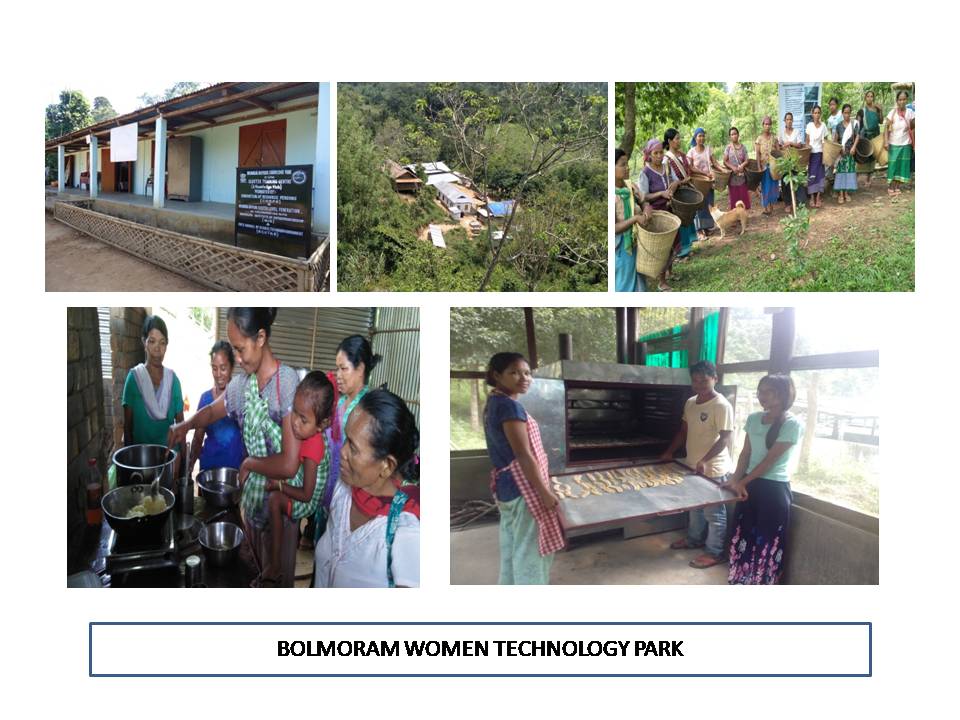
Date: 2018-08-15
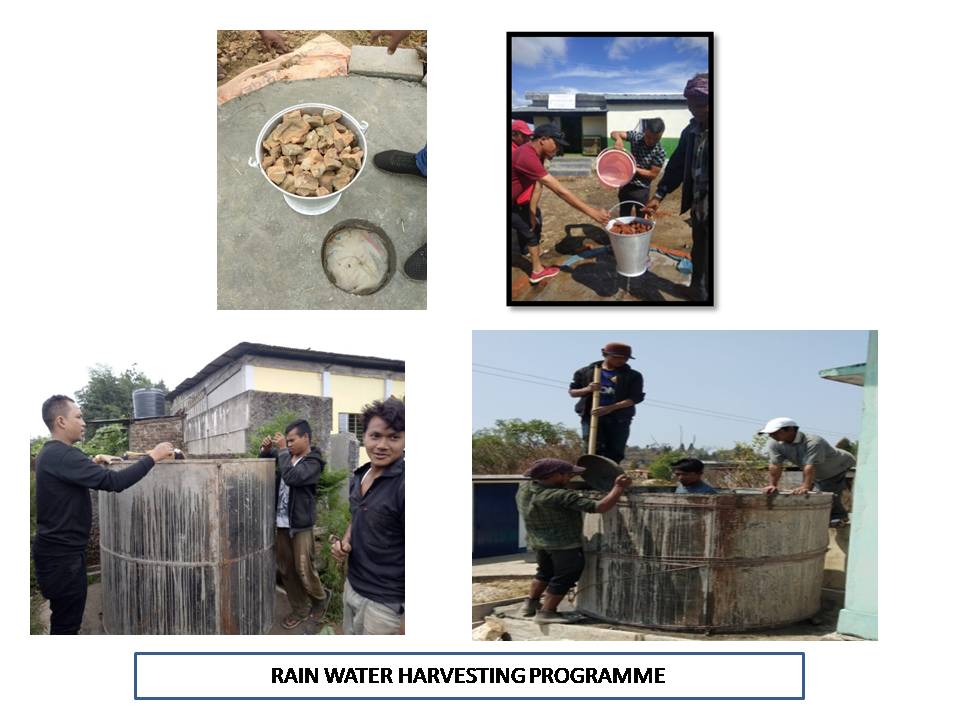
SCSTE, Meghalaya had made a lot of intervention with regard to water management issues. The Council design of the Rain Water Harvesting infrastructure is by fabrication of a mould so that construction is made easier, portable and convenient with a capacity of 2000 liters .The use of filtering (sand, charcoal, coconut) fitted in the mould helps to filter raw water from the rooftops and catchment areas so that it is suitable for usage . Another positive impact on Rain Water Harvesting is the collaborative programmme with North East Slow and Agro Biodiversity Society (NESFAS), Shillong whose one of the objectives is towards improved Water, Sanitation and Hygiene (WASH) in schools and communities areas of the state .In this regard ground situations assessment was conducted during January and February 2019 at 2(two) water scarcity villages, Laitsohpiah, East Khasi Hills and Pyndengmawlieh ,West Khasi Hills. During the month of March 2019, with the technical support of SCSTE, Meghalaya4 (four) units of Rain Water Harvesting were installed 3(three) at schools and 1(one) unit at the household where there are no water tanks for toilets, hand washing and even mid day meals. A hands –on training on Rain Water Harvesting was imparted to the masons from the community as master trainers who also trained others. The training was conducted at laitsohpiah Village, from the training conducted master trainers were able to install another 3(three) units one at Pyndengmawlieh L.P. school, West Khasi Hills and one unit was constructed by one household in the same village ,and another unit at one school at lummawsiang Umdum village West Khasi Hills. Replication has also been taken up by 2(two) villages, namely, Shkentalang village, West Jaintia Hills and Mawreng village, South West Khasi Hills after hands-on training programme organized by the council. The replication of the Rain Water Harvesting technology by means of community participation will support making water available in rural schools to improve Water, Sanitation and Hygiene conditions and also help household to tap natural source of water for usage purposes thereby improve daily living conditions and to reduce drudgery for rural women section.
Date: 2018-08-15
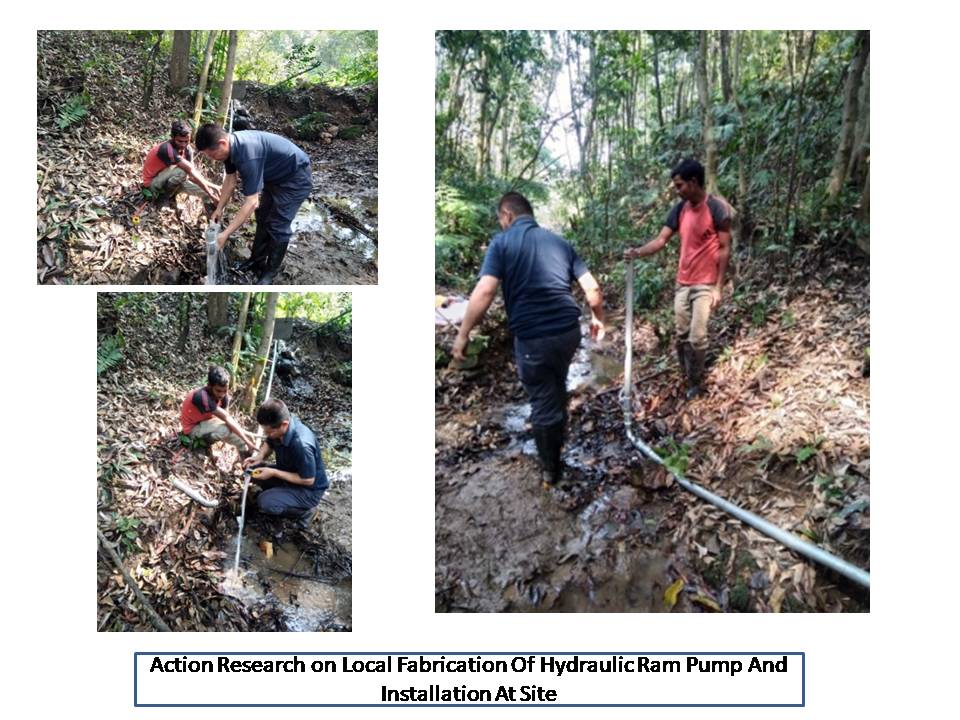
Hydraulic Ram Pump (HRP) is a water pump powered by hydropower that uses the power of falling water without the need of any external power. HRP’s are mostly intended for water supply in hilly or mountainous areas, requiring small flow rates delivered to high heads. It functions as a hydraulic transformer that takes in water at one hydraulic head (pressure) and flow rate, and outputs water as a higher hydraulic, head and lower flow rate. The devices utilize the water hammer effect to develop pressure that allows a portion of the input water that powers the pump to be lifted to a point higher than where the water originally started. SCSTE, Meghalaya has propagated the HRP technology for its water supply programmes, but the S&T gaps has been identified since procurement of HRP machines were made from outside, and a technician has to brought from outside which involves costs, time and resources, hence it is felt necessary that an Action Research Programme to fabricate HRP be initiated and tested for installation and cost at the field level/local level using locally available materials. After proper survey in the field, one site ideal for intervention was selected at Umsaitsning village, Ri Bhoi District to undertake the above Action Research. After the necessary site preparations were made, Materials (pipes, sockets, bolts, nipples, etc.) were assembled for HRP system, and the same installed at the selected site, after 2(two) phases of intervention, the pump finally came out with a successful result, which the pump was able to deliver approximately 4320 LPD, the amount of water discharged has been projected to serve for around 14 households in a rural set up. The above Action Research Programme will also continue in other villages of the districts of the State, taking into consideration that the villages require such S&T interventions.
Date: 2018-08-15
The objective of the above Programme is to take appropriate technologies to the rural masses at their doorsteps in a mobile form.
Gaps identified: Villages from far flung areas cannot access the information required from the Block office (which is the only means of communication for a villager) due to certain reasons like considerable distances, a feeling of inferiority or uncomfortness, either that they are too poor and cannot afford transportation fares, or that the training programmes conducted do not meet their requirements.
Hence in order that each villager is not deprived of the opportunity to access to appropriate technologies relevant to their needs, it is felt necessary that a mass outreach of appropriate technologies be taken to remote and far flung areas of the State (also taking into consideration the topographical terrain of the State) in a mobile form. In this regard 4 nos. of 4 wheelers vehicles were procured for the process, and given volunteers were identified to take up the task at the field level for
1. Scouting the technology requirements
2. Scouting the skills and interests of villagers
3. Identifying appropriate technologies
Based on the above, training programmes have conducted at different villages of the State on technologies related to (i) Housing, (ii) Energy, (iii) Water, (iv) Sanitation and (v) Value addition.
It is interesting to note that due to the success of this initiative, Development Institutes in the State have joined hands with SCSTE, Meghalaya for mass outreach to remote areas on a convergence mode, these are Extension Training Centre (ETC), State Institute of Rural Development (SIRD) and Meghalaya Basin Development Authority (MBDA).
From the evaluation reports, it has been seen that villagers expressed their interests on the appropriateness of the technologies for daily life improvement especially Stabilized Mud Block (SMB), Improved Chulha, Low-cost Toilet, Rain Water Harvesting and Treated Bamboo, which they also replicated the same in their respective households.
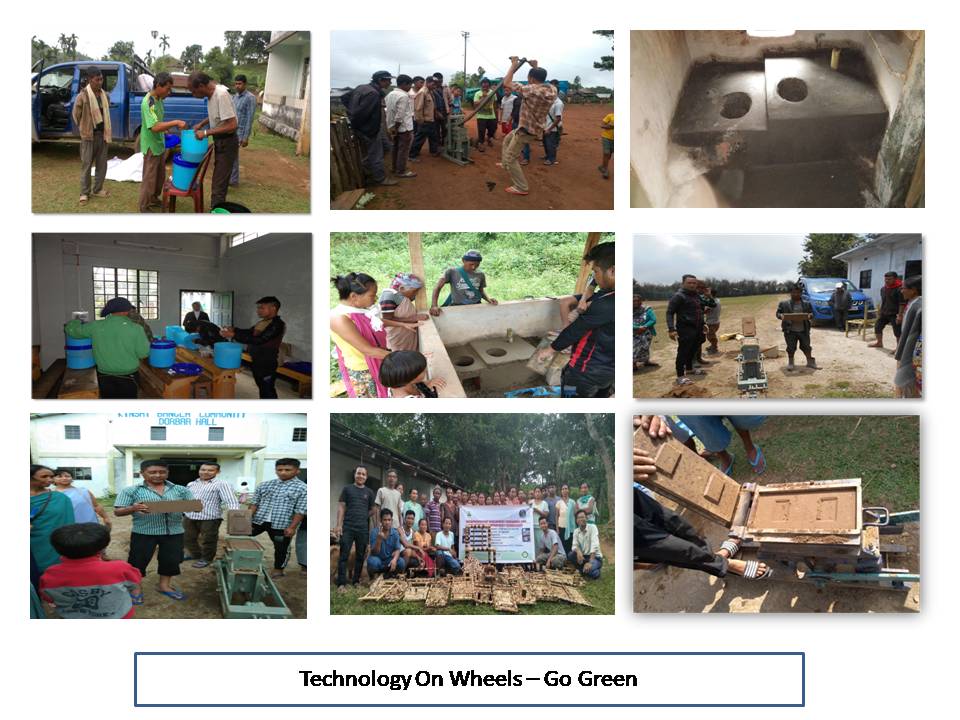
Date: 2018-08-15
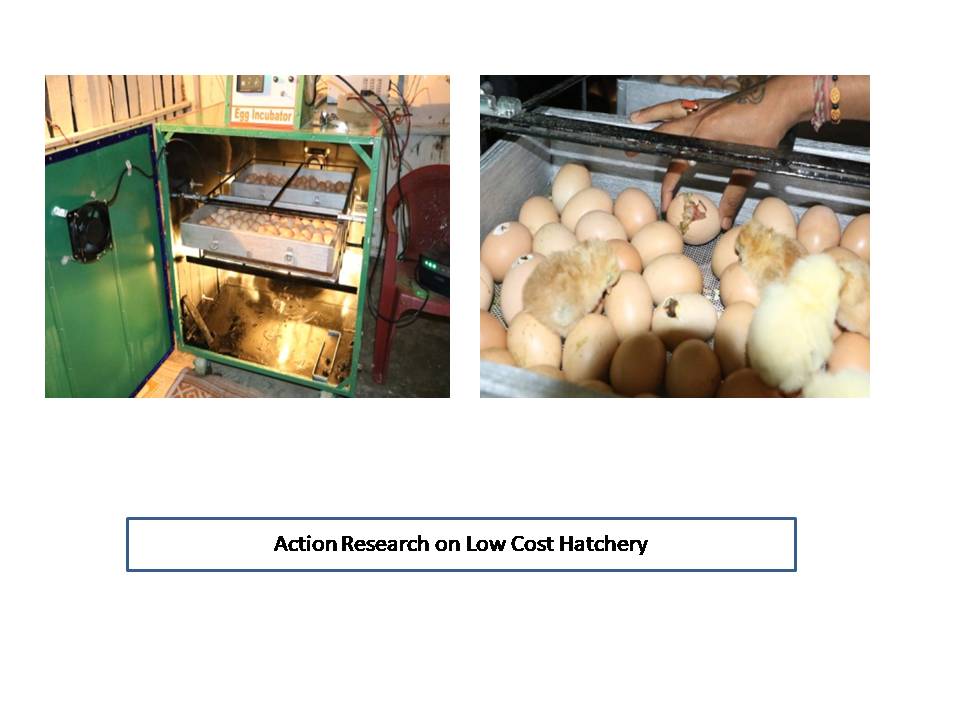
Poultry rearing has always been the main occupation for rural people in the State, and associated with it is the hatching of eggs either by a natural process or by means of incubations. Low cost hatching includes using of low-cost means of incubation with minimal expenditures, and locally available skills and manpower, SCSTE, Meghalaya had introduced Solar Incubation for hatching of eggs on an action research basis. The process takes 19-21 days depending on climatic conditions of the place. Nongkasen village has been selected as an agro-climatic region for a Solar Incubation hatching, i.e, using solar power for running the incubator, the idea of using solar energy is to encourage chicken farming and rearing in rural areas especially also with an objective to import training, counseling for rural people for promoting entrepreneurial activities. Solar Incubator of 300 eggs capacity was installed at the above selected site, and observed between 19-21 days for hatching, which there was no result i.e, hatching does not take place within the scheduled time period, after another 7 days of observation, it was found that hatching of eggs has taken place, though late by 7 days. Also depending on the climatic condition of the area being heavy rain, cloudy and foggy, it may be summed up that the solar incubator hatching has a positive result. With the success of the above, SCSTE has come up with more ideas to try alternative techniques like using of kerosene/generator backup etc. in order that poultry rearers are more aware of other alternatives for hatching as well.
Date: 2018-08-15
SCSTE in collaboration with ILRT, Bhopal have taken up an action research in Dew-fog technology to trap dew and fog water and store them so that they can be used in off-season to provide micro-irrigation and support livelihood of small farmers. The unit has been installed at Skentalang village in East Jaintia Hills District, Ram Krishna Mission School, Sohra, Phlangwanbroi, Mawsynram and Laitlum Village, East Khasi Hill Districts. Data from these sites indicated that there is a high potential for tapping water from dense Dew-Fog rich mountains region of Meghalaya. In view of this, a new project entitled “Dew-Fog technology at Laitlum Canyon” has been initiated to upscale the model at Laitlum Village which has been approved under the District innovation Fund (DIF) scheme of the State Government. The technology has gain laurelled from the villagers of Laitlum and Rasong Village as well as from the office of the Block Development Officer (BDO), Mawkynrew C&RD Block. A paper entitled “Dew-Fog as a supplementary source of water in the hilly terrain of Meghalaya, India” was also presented on the 8th International Conference on Fog, Fog Collection and Dew that was held at Taipei, Taiwan, from 14–19 July 2019.
